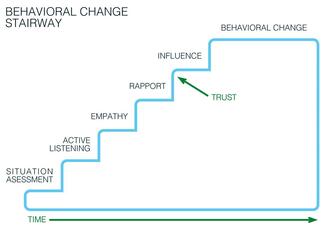Law Enforcement
DESIGN CHALLENGE:
Critical thinking skills essential for handling crisis situations in policing are typically acquired through experience and field training. Also, new officers tend to revert to use of force in situations when verbal de-escalation skills are overwhelmed. We wanted to develop critical thinking skills and verbal de-escalation skills for new police academy recruits to avoid unnecessary violence and career ending injuries. We needed to do this in a low risk environment.
PROJECT RESULT:
This class consistently receives the highest student rating of all classes in the 5-week police academy.
Critical thinking skills essential for handling crisis situations in policing are typically acquired through experience and field training. Also, new officers tend to revert to use of force in situations when verbal de-escalation skills are overwhelmed. We wanted to develop critical thinking skills and verbal de-escalation skills for new police academy recruits to avoid unnecessary violence and career ending injuries. We needed to do this in a low risk environment.
PROJECT RESULT:
This class consistently receives the highest student rating of all classes in the 5-week police academy.
DESIGN PROCESS:
Research & synthesis:
Research & synthesis:
- Interviewed veteran police trainers, field training officers and new police officers.
- Reviewed related state and federal guidelines.
- Reviewed actual incidents from 911 calls.
- Identified effective communication models.
- Developed scenarios relevant to the work experience of new police officers.
|
Adapted from the FBI & Dr. G. Dwayne Fuselier's communication models, the following is an effective verbal de-escalation model used in our training. Often negotiators try to effect behavioral change before they have built empathy, rapport and trust using the 7 active listening skills. If they are not experiencing success in the negotiation they can identify where they are on the Behavioral Change Stairway and move systematically back through the steps until they have developed trust with the person and are in a position to influence behavioral change.
|
Ideation, selection & validation based on research findings:
- With the help of 5 professional actors and 4 facilitators, we staged a one-day on-site training with a didactic and facilitated role-play component.
- During role-play time-out’s students problem solved as a group and gave each other feedback on how the approach was working or not working. Students then went back into role-play to execute the plans developed during group discussion.
Book a complimentary Discovery Call with us.
Let's discuss how we can support your agency and help your first responders thrive.
info@CWORXtraining.com • (914) 50-CWORX
California • Colorado • Minnesota • New Mexico • New York
California • Colorado • Minnesota • New Mexico • New York

